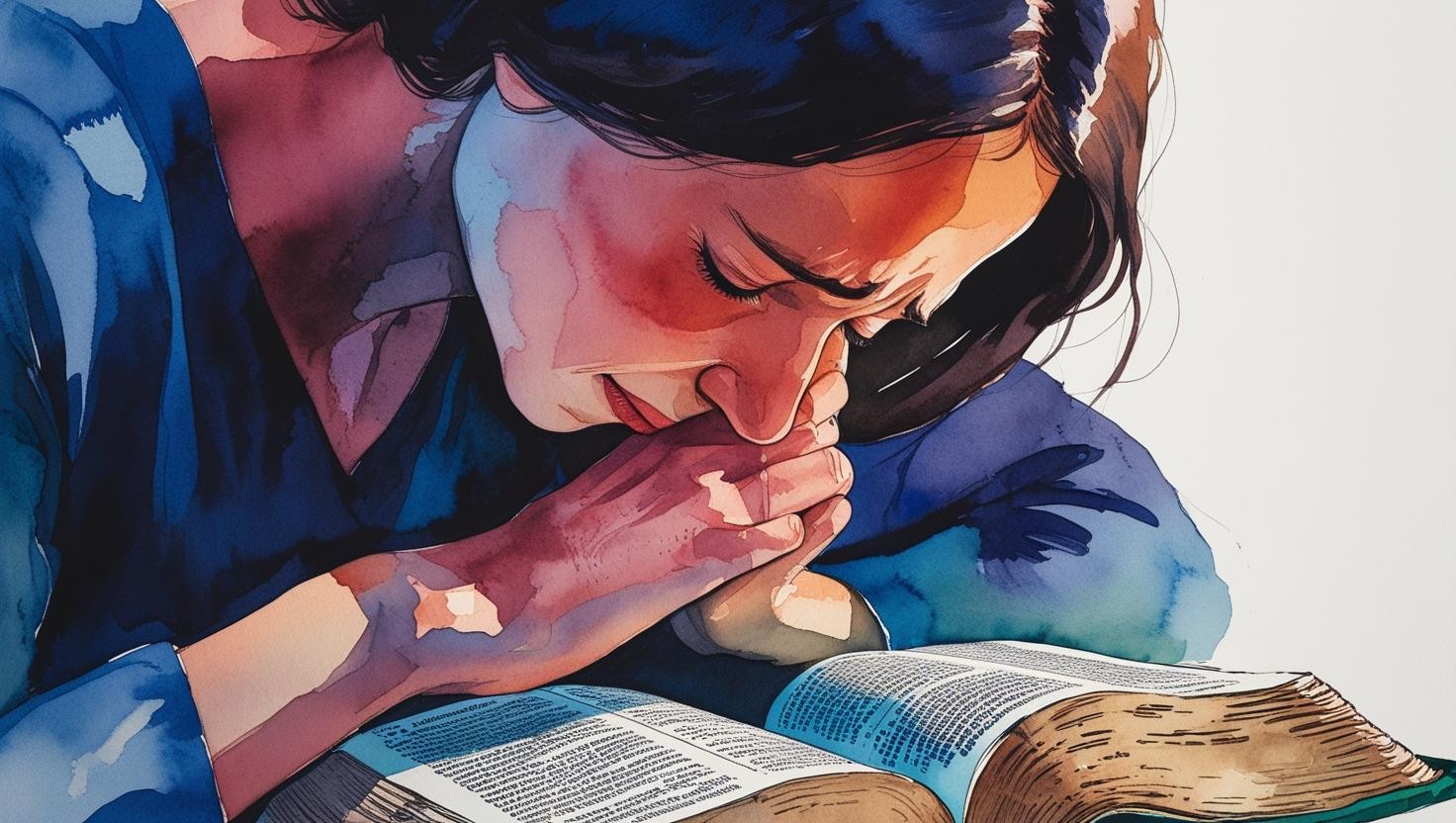On April 16, 2025, I lost my brother James Larry. He was 77 years old and died from a number of medical issues.
Grief has become once again a part of our family’s heart condition. The fact that I have a master’s degree in counseling and have done some counseling with those going through the grief process does not ease the feelings of loss I feel. Over the last few days, I have returned to my books and studies on the issues of grief. It is my way of dealing with my personal grief. Grief is the process where we human beings come to grips with the loss of a loved one, and is a necessary part of dealing with the heartache, pain, and sometimes despair we face in times of loss. Grief is normal. It is not a sin. It is a part of healing after a loss. Isaiah tells in 53:3 that our Savior was "a man of sorrows and acquainted with grief." In fact, at the tomb of Lazarus, Jesus, Himself, wept (John11:35)--a sign of the grief He felt at the death of a dear friend. It should be noted that even though He was about to raise Lazarus from the dead, He showed His sorrow over the momentary loss of His friend.
I find it helpful to consider the process of grief. And frankly, it is my way of dealing with my personal grieving. There is the initial shock of death, sometimes referred to as shock, numbness, or denial. Regardless of whether the news of loss is expected or unexpected, we can become overwhelmed trying to cope with the emotional numbness we feel. Following this initial shock, we can feel pain and even guilt because of the increased support we may need from our family and friends during our emotional trauma. The "Emotional Release" phase is the time characterized by a period of crying, sometimes bitterly. We're craving support and at the same time needing to be alone. It helps to vent when one is grieving by sharing our feelings with a supportive friend, pastor, or counselor. The need for a good listener is essential and strangely comforting in our grief. The sense of loneliness and depression is generally related to the degree of dependence on and the level of emotional attachment to the deceased. Grieving a spouse, children, grandparents or siblings may well bring more pain than when we are grieving the loss of friends or non-relatives. But never forget that it is normal and healthy to mourn and grieve the loss of a loved one. In Matthew 5:4 Jesus said, “Blessed are they that mourn: for they shall be comforted." So, it is good to express feelings of guilt, anger, confusion or despair. Bottling them up can lead to unhealthy physical symptoms.
Guilt is a feeling characterized by second-guessing: “I could have done more,” or “I should have done something differently.” The intense emotional impact of loss can sometimes leave us with a seeming paralysis. Our emotions can be overwhelming. There can also come a feeling of anger and hostility. We question and blame God, “Why did You do this to me?” Or attack others for not doing more. This is often followed by a feeling of inertia or listlessness: “I can’t get on with life.” Or for some it is, “I couldn’t care less.” These feelings are often normal in the grieving process. God wants to bear our heartaches and losses and give us His comfort, hope, and encouragement. As 1 Peter 5:7 puts it, "Casting all your care upon Him, for He careth for you.” Again, in Matthew 11:28 we are told to, ”Come unto me, all ye that labor and are heavy laden and I will give you rest.” Peace will come when we put our grief in the hands of the Lord. Then, the “Peace of God, which passeth all understanding, SHALL keep your heart and mind through Christ Jesus.” Philippians 4:7. At that point we can start reconstructing our lives and taking action to move forward. We begin to reconstruct our new normal. Returning to reality and normality is the phase of admitting our loss and adjusting to it.
Not everyone walks through this grieving process in exactly the same way. Grief is deeply personal and can spin our lives out of control if we are not rooted and grounded in Truth. The deeper our relationship is to Christ, the better we can handle the trauma grief brings into our lives. Sometimes grief does not hit a person immediately. It may take weeks, months, or even years before the full reality of their loss comes pouring in on them and they can progress through the grieving process. So, we must understand and BE understanding.
Grief is a part of the human experience. As believers in Christ, we need to be supportive, understanding, loving, and kind with those who are working through a season of grief. It well could be the best thing you could do to simply sit quietly and listen to them and give them a shoulder to cry on. Remember, though tears can be a way of dealing with grief, do not associate the absence of tears with the lack of grieving. Everyone deals with grief in a personally unique way.
2 Corinthians 1:3-4 “Blessed be God, even the Father of our Lord Jesus Christ, the Father of mercies and the God of all comfort, Who comforteth us in all tribulation, that we may be able to comfort them which are in any trouble, by the comfort wherewith we ourselves are comforted of God.”
The trials, tribulations and yes, even the griefs we ourselves have, by God’s help, been comforted through and have overcome, equip us to share that comfort with others. Grief does not have to be an end-of-life event, it can be a new and exciting ministry to helping others. When God comforts you, use that comfort to help and comfort others in their time of need.




